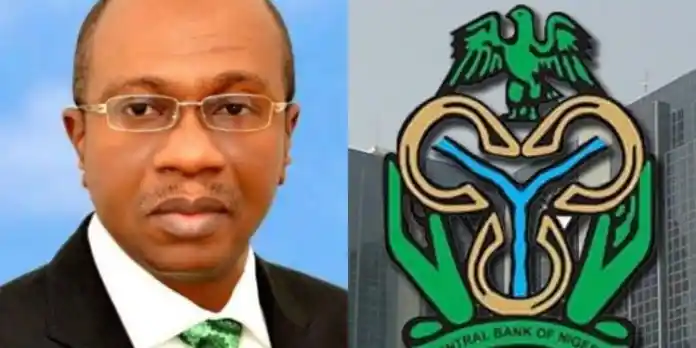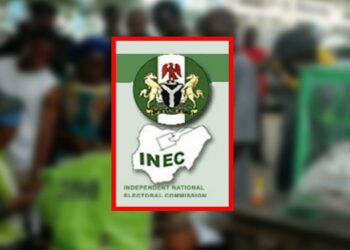CBN has reduced cash withdrawals to N100k and N500k per week for individuals and companies.
Glamtush reports that the Central Bank of Nigeria (CBN) has announced a new policy that mandates deposit money banks and other financial institutions to ensure that over-the-counter cash withdrawals by individuals and corporate entities do not exceed N100, 000 and N500, 000, respectively, per week.
This online platform understands that the revised cash withdrawal limits, contained in a circular issued today by the apex bank and seen by Nairametrics, will take effect nationwide on January 9, 2023.
After the policy takes effect, all cash withdrawals above the stated limits will attract processing fees of 5% and 10%, respectively.
The new policy is coming barely weeks after President Muhammadu Buhari launched the newly redesigned N200, N500, and N1000 banknotes.
In line with the new cash withdrawal limits, any third-party cheques above N50, 000 will not be processed over the counter by any bank. The CBN said the “extant limits of N10, 000, 000 on clearing cheques still subsist”.
- Weekly withdrawals through automated teller machines (ATMs) will be reduced to N100, 000 per individual. Withdrawals through this channel will also be subject to N20, 000 daily withdrawal limit.
- In the same vein, the daily withdrawal limit through a point of sale (POS) terminals is N20, 000.
- Note that the new N500 and N1000 banknotes will not be withdrawn through ATMs, as only N200 and below will be made available through the channel.
However, the CBN said there is a provision for individuals and corporates to withdraw N5 million and N10 million, respectively, once a month. However, this is only for rare occasions and all parties intending to take advantage of this provision must provide compelling evidence of legitimate business purposes.
- “In compelling circumstances, not exceeding once a month, where cash withdrawal above the prescribed limits is required for legitimate purposes, such cash withdrawals shall not exceed N5, 000,000 and N10, 000, 000 for individuals and corporate organisations, respectively, and shall be subject to the referenced processing fees in (1) above, in addition to the enhanced due diligence and further information requirements.”
To qualify for this exception, individuals and corporate organisations must provide the following information:
- Valid means of identification.
- Bank verification number (BVN)
- Notarised declaration by the customer stating the reason for the excess cash withdrawal.
- Written approval by the Managing Directors for drawees withdrawing on behalf of companies.
- The CEOs of banks must authorise such withdrawals in writing.
The CBN mentioned that the policy on revised cash withdrawal limits is in line with its cashless policy. Ultimately, the plan is to encourage more Nigerians to use alternative channels to carry out their banking transactions. Examples of such alternative channels are mobile banking, USSD, debit cards, POS, eNaira, etc.
- The policy is also part of the apex bank’s plans to protect the newly redesigned banknotes and guard against their misuse, counterfeiting and hoarding.
- This is especially important given the recent news that the money supply in the Nigerian economy jumped to an all-time high of N49 trillion in August.
- Excess money supply in the economy encourages inflation. And Nigeria has been battling a high inflation rate which soared to 21.09% in October 2022. The CBN responded to that by increasing the benchmark interest rate (MPR) by 100 basis points to 16.5% during its last Monetary Policy Committee (MPC) meeting for the year.
Recall that the newly redesigned N200, N500 and N1000 naira notes were launched on November 23rd, 2022, about one month after the CBN first announced the impending redesign.
The redesigned banknotes will, among other things, curtail excess cash outside of the banking system whilst combating inflation.
The deadline for phasing out the old N200, N500 and N1000 banknotes is January 31, 2023.
To see the full statement from CBN, click HERE






















